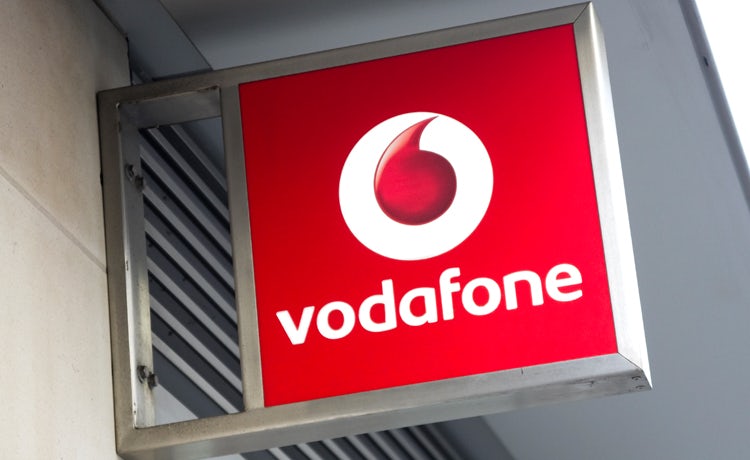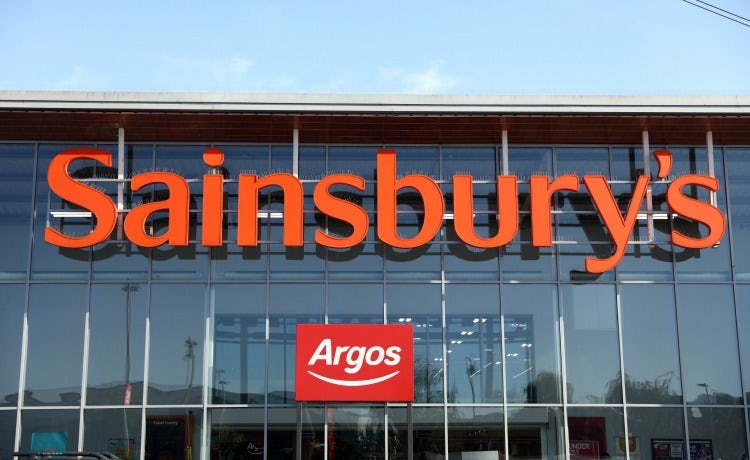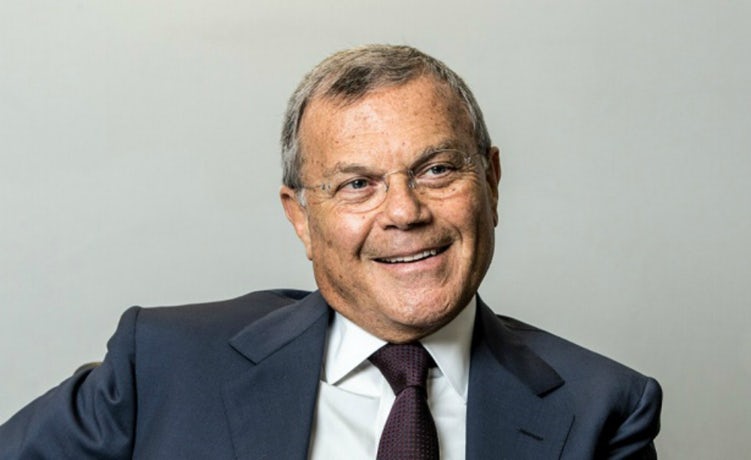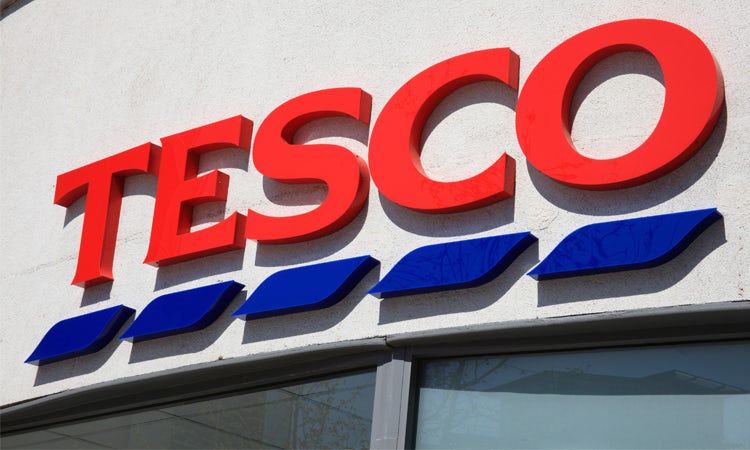WPP, YouTube, Smart TV: Everything that matters this morning
Good morning and welcome to Marketing Week’s round-up of the news that matters in the marketing world today.
WPP hits out at Sorrell’s play for MediaMonks
WPP claims Sir Martin Sorrell’s pursuit of digital production business MediaMonks is “unlawful”.
The advertising giant is accusing its former founder of breaching “confidentiality obligations” with his proposed takeover of the Dutch production house, a company Sorrell first encountered while serving as WPP CEO.
WPP’s lawyers have written to Sorrell stating that any move to make MediaMonks the first acquisition by his new venture S4 Capital would be “unlawful” because he is using information gathered while he and WPP were considering buying the business last year, prior to his resignation as CEO in April.
WPP alleges its former founder was “heavily engaged” in the advertising company’s investigation of MediaMonks, including meeting the management team in the Netherlands.
It is thought WPP could block Sorrell from collecting up to £20m in future payouts if he continues to pursue the acquisition of MediaMonks.
Sorrell’s lawyers dispute the allegations and have asked WPP to provide evidence for its claims.
READ MORE: Martin Sorrell’s move for MediaMonks is unlawful, claims WPP
Social media small print is too complex for kids

Children could be signing up to social media apps with terms and conditions that only university students can understand, according to new BBC research.
Despite the minimum age to use sites such as YouTube, Facebook, Twitter and Instagram being 13, the BBC found it would take up to nine hours to understand the complex language used in the terms and conditions of 15 popular sites.
The fear is that app and social media firms could be in breach of European data rules by not clearly spelling out to children how they are using their personal data.
While several companies have responded to the BBC research saying they are working on improving the legibility of their legal documents by introducing easy-to-read summaries, MP Damien Collins accused tech companies of using terms and conditions to “exploit” users’ data.
Collins, who chairs the House of Commons Culture Committee, said that tech companies should be required to spell out in “plain English” how their users can protect their data.
Research from Ofcom’s Children and Parents: Media Use and Attitudes Report, released in November 2017, revealed 48% of children as young as three and four use YouTube. Furthermore, 3% of children aged five to seven have a social media profile, despite the age limit to join most social sites being 13.
By the age of nine 12% of children have a social media profile, 28% by the age of 10 and 46% by age 11.
READ MORE: Social media small print too hard for kids
Smart TVs track viewing habits to send targeted ads to other devices

Smart TVs are monitoring viewers’ watching habits to send targeted ads to other devices in their homes, according to reports in The New York Times.
Sharp, Toshiba, Sony and Philips are amongst the TV manufacturers that allegedly agreed to insert the technology into the operating devices of their smart TVs to track viewing habits.
Installed on the televisions before they are bought, Samba TV software can capture data on the adverts, programmes, channels and genres viewers are watching on their Smart TVs. The software uses this information to target adverts at viewers through the TV, computers or smartphones in the house.
According to reports in the Telegraph, Samba TV software can also use a viewer’s smartphone microphone to listen to what is on nearby television sets. While the software is installed on the smart TVs prior to purchase, viewers are prompted to install it themselves during the set-up process.
READ MORE: Smart TVs tracking viewers’ watching habits to send targeted adverts to other devices
Retailers target World Cup sales boost ahead of England quarter final

England’s appearance in the World Cup quarter finals this weekend could generate £860m of grocery sales on Friday and Saturday, a rise of 5% on usual figures.
Kantar Worldpanel data suggests that UK consumers will make an extra 1.4 million trips to the shops on Friday and Saturday, with alcohol sales expected to rise by 25% and be in included in over 30% of the extra shopping trips. If expectations are correct these shopping trips will pump an additional £26m into the grocery market across the two days alone.
With the overlap between Wimbledon and the World Cup, retailers should expect sales of Pimm’s and sparkling wine to be more than the World Cup alone would generate, with London shoppers accounting for the majority of Wimbledon-related incremental sales.
Calls for overhaul of ‘ineffective’ alcohol marketing regulations

Leading alcohol charities are calling on the Government to overhaul its alcohol marketing regulations amid claims of inconsistent decision-making, a lack of scrutiny and an “apparent failure” to address how modern alcohol marketing works.
Analysis from Alcohol Concern and Alcohol Research UK of the alcohol industry-funded regulator, the Portman Group, alleges that the group’s complaints panel make decisions based on opinion rather than real-world evidence about how people drink.
Furthermore, the research found that bottles and cans are regulated by the Portman Group without reference to the adverts that promote them, which are reviewed by the Advertising Standards Authority. Alcohol industry sponsorship of television programmes is then dealt with by Ofcom, leading the charities to claim that while all these elements are linked for the alcohol companies, regulators fail to see the full picture.
The report also alleges that the Portman Group lacks accountability, having little or no means to amend or reverse decisions, and that its purpose is not well-defined, nor does it make explicit its role in reducing alcohol-related harm.
Alcohol Concern and Alcohol Research UK are now pushing for a “thorough overhaul” of alcohol marketing regulation as part of the UK Government’s new national alcohol strategy, announced in early May.
Thursday, 5 July
Iceland crowned best supermarket for customer service
Iceland has beaten Waitrose and Aldi to be named the UK’s top supermarket for customer service, according to the bi-annual UK Customer Satisfaction Index, which surveys 10,000 consumers about all types of business.
Iceland is the highest performing food retailer, coming 10th in the overall ranking, while Waitrose which was the top supermarket in January, comes 17th and Aldi (the top performer last July) and M&S Food are joint 23rd.
Amazon takes the top spot overall for the sixth time in a row, with a score of 86.7 out of a potential 100, just beating John Lewis, which comes second with a score of 86.5.
The survey measures more than 30 aspects of customer service, including staff professionalism, the quality and efficiency of the service, trust, and transparency.
READ MORE: Iceland tops supermarket satisfaction list
Vodafone overhauls recruitment to attract more LGBT+ workers

Vodafone is overhauling its recruitment and HR processes as it looks to become more inclusive and encourage LGBT+ employees to be themselves at work.
The move comes after research by the mobile network revealed two fifths of young LGBT+ workers are afraid being out at work could damage their career prospects.
In response Vodafone plans to change the wording of job ads to make them more inclusive, overhaul its code of conduct and introduce a ‘buddying’ support programme for LGBT+ graduates.
Vodafone surveyed more than 3,000 people across 15 countries as part of the study and found 58% were not open about their sexual orientation or gender identity at work in case they were discriminated against. The issue is most pronounced among people at the beginning of their career, with a third admitting they went back in the closet after starting their first job.
Over the past 10 years, since outgoing CEO Vittorio Colao took over leading the business, Vodafone has been on a journey to make the company more inclusive and diverse.
Of the latest move, he says: “I am saddened that so many young LGBT+ people feel they still have to hide their status in the workplace.”
READ MORE: Vodafone overhauls recruitment to attract more LGBT+ talent
England’s World Cup win attracts biggest TV audience since London 2012

England’s World Cup win over Colombia on Tuesday night drew in the biggest TV audience since the London 2012 Olympics closing ceremony, with more than 24 million people tuning into ITV at its peak.
Some 20.1 million people watched the entire match on ITV, according to industry viewing figures, with more than 80% of everyone watching TV on Tuesday evening tuning into the match.
A further 3.3 million requests were made to watch the match via ITV Hub, according to the broadcaster, while a one-minute peak of 24.4 million viewers was also recorded by ITV.
Marketing Week columnist Mark Ritson says that while streaming is growing, when looking at TV’s average per-minute audience it wins for high-profile events like the World Cup every time.
Jaguar Land Rover warns a bad Brexit could halt its £80bn UK investment

Jaguar Land Rover, the UK’s largest car manufacturer, has warned that a “bad” Brexit deal will hit profits and put its £80bn UK investment plans in “jeopardy”.
As Downing Street sets out details of a possible post-Brexit customs arrangement, Jaguar Land Rover’s CEO Ralf Speth says: “A bad Brexit deal would cost Jaguar Land Rover more than £1.2bn profit each year. As a result, we would have to drastically adjust our spending profile; we have spent around £50bn in the UK in the past five years – with plans for a further £80bn more in the next five.
“This would be in jeopardy should we be faced with the wrong outcome.”
Speth says the firm “urgently” needs greater certainty if it is to continue to invest heavily in the UK adding that its “heart and soul is in the UK”.
READ MORE: Jaguar Land Rover boss: Brexit threatens £80bn UK investment
40% of UK workers have a ‘side hustle’

Around 40% of UK workers now have a ‘side hustle’ alongside their day job, with half of those doing it for the additional income, while many treat it as a passion project or the chance to explore a new challenge.
Marketing Week columnist Helen Tupper has talked previously about the benefits of choosing a side project that can in fact propel your career by teaching you new skills and help you recover from the demands of the day job.
The number of people with a side hustle is expected to reach 50% of the adult population by 2030 as the trend picks up pace, according to the study of more than 500 business leaders and 1,100 adults.
Henley Business School, which did the research, says increased uncertainty about job security is one reason people are looking to run a business on top of their day job. The study finds 45% of people with a side project consistently work more than 40 hours a week, and a quarter work more than 50 hours a week.
Wednesday, 4 July

Sainsbury’s growth slows due to competitive market
Sainsbury’s like-for-like sales growth continued to slow in its first quarter as appears to fall victim to competitive price wars.
Britain’s second biggest supermarket group reported a 0.2% rise in like-for-like sales, excluding fuel, in the 16 weeks to June 30. The increase compares to 0.9% in the fourth quarter and 1.1% in the three months before.
Chief executive Mike Coupe says: “The market remains competitive. However, we have the right strategy in place.”
Sainsbury’s is planning to merge with supermarket chain Asda but the deal is currently being investigated by the UK’s Competition and Markets Authority.
READ MORE: Sainsbury’s sales growth slows in latest quarter
Telegraph profits halve as it plans £10m investment

The Telegraph Media Group’s (TMG) profits halved last year due to falling print circulation and a deteriorating print advertising market.
The publisher of the Daily Telegraph and its Sunday sister title says pre-tax profits fell from £27.1m in 2016 to £13.7m last year in an unusual results reveal. As a privately owned company, TMG decided to publish its results despite no obligation to do so fuelling speculation that owners, the Barclay brothers, are seeking to sell the paper.
TMG’s chief executive Nick Hugh said that revenues had stabilised since the end of the year and he was optimistic about the effect of a £10m annual investment programme. The money will go into the creation of 100 jobs across the business including in data, technology and brand marketing.
He adds:“The revenue decline will tail off and stabilise and will be turned into revenue growth and profit growth. I’m bullish about the future of the Telegraph.”
Hugh says he is aiming to attract 10 million registered customers to the paper’s website, with a first target of three million to be reached by the end of 2018.
READ MORE: Print advertising woes weigh on Telegraph owner
Sorrell set to battle WPP for digital advertising agency

Sir Martin Sorrell is set to battle it out with his former company WPP in the fight for £265m digital advertising agency MediaMonks. The Dutch advertising production house would be his first acquisition with new venture S4 Capital.
The auction for MediaMonks includes a number of interested companies including WPP, according to the Guardian. The involvement of both companies in an auction raises questions about the absence of a non-compete clause in his final WPP contract.
Sorrel launched S4 Capital last month raising up to £150m from investors after resigning from WPP following an investigation into his personal conduct.
“We are flattered to be mentioned in this context,” says a spokeswoman for MediaMonks.
READ MORE: Sir Martin Sorrell battles WPP in bid to buy first firm
Government ‘must act now’ to save UK high street, says former retail chief
Britain’s town centres are “in big danger of becoming ghost towns in the future”, says a former retail exec, as his independent report predicts nearly 70,000 high street jobs will disappear this year.
Bill Grimsey, the former head of Wickes and Iceland, in his second independent review into the British high street warns of further closures if urgent action is not taken. The report makes a series of recommendations including an overhaul of the business rates system and investment into social areas.
He tells the BBC: “We must act now….Forget retail for town centres, they need to become community hubs based on health, education, entertainment, leisure and arts and crafts.”
Retailers on UK high streets have been suffering due to online competition and rising costs. Both Maplin and Toys R Us have closed this year and Marks & Spencer, House of Fraser, Carphone Warehouse plus others have announced store closure plans.
READ MORE: Town centres could become ghost towns, warns former retail chief
Water firms large pay packets must be curbed says regulator

Private water firms have been criticised for damaging customers’ trust with huge bonuses which must be curbed in future, the industry watchdog has warned.
Water companies are being required to link bosses’ pay and shareholder dividends to customer service performance as Ofwat warns consumer trust has fallen. Ofwat say firms have until September to submit updated business plans for the 2020-2025 price period.
Rachel Fletcher, Ofwat’s chief executive, says: “The decisions some water companies have made on dividends, financial structures and top executive pay have damaged customer trust. This is an important step in making sure water companies put customers’ interests and those of future generations, at the heart of all the decisions they take.”
READ MORE: Water firms must link bosses’ pay to performance under Ofwat rules
Tuesday 4 July
Asos set to appoint Adam Crozier as chairman
Asos is expected to name former ITV boss Adam Crozier as its chairman.
Crozier – who is also chairman of Costa Coffee and Premier Inn owner Whitbread, Vue Entertainments and Stage Entertainment – will replace Brian McBride who has been chairman of the British online fashion retailer since 2012.
Prior to joining ITV in 2010, Crozier was chief executive of Royal Mail for seven years, and chief executive of the Football Association for two years before that.
His media career began more than three decades ago at Pedigree foods as a graduate trainee in 1984, before he moved on to the Daily Telegraph in 1986. In 1988 Crozier joined advertising agency Saatchi & Saatchi, becoming media director in 1990 and joint CEO in 1995.
Asos is now worth more than M&S, where Crozier’s former boss at ITV, Archie Norman, is chairman. The companies are valued at £5.1bn and £4.79bn respectively.
Uniqlo signs deal with Roger Federer

Roger Federer has signed a 10-year $300m (£228m) deal with Japanese clothing brand Uniqlo.
After his Wimbledon match on Monday, the tennis player said: “I was excited to wear Uniqlo today”, adding that the partnership had been a “long time coming”.
Uniqlo tweeted: “Uniqlo is honoured to welcome Roger Federer as our new global brand ambassador”.
Federer ended his 24-year partnership with Nike earlier this year. According to reports, Nike declined the chance to match the new contract, which is more than double his current pay check.
In a statement, Nike said it does not comment on athlete contracts but that it was “thankful and proud to have been a part of Roger’s incredible journey and wish[es] him the best in the future.”
READ MORE: Roger Federer drops decades-old Nike partnership for Uniqlo
Fuller’s partners with London Pride

Fuller’s craft keg beer, London Pride Unfiltered, will be London Pride’s official beer partner on 7 July, as the London brewer looks to “lampoon” advertisers’ outdated stereotypes about male beer drinkers.
The move is supported with a Pride-themed campaign, with a number of Fuller’s pubs across London set to take part. This will include Pride loves Pride themed t-shirts worn by staff and bespoke themed keg lenses, glasses and beer mats.
Meanwhile, an outdoor campaign will run at Oxford Circus with the messages “You wait hundreds of years to see a gay beer ad” on the first, and “And then two come along” on the second, alongside a raft of activity on social media.
“Pride in London is a great fit for Pride, but it doesn’t just share the same name; we share the same values of authenticity and independence, being a long-standing part of the fabric of London’s rich and varied culture since 1959,” says Jane Jones, director of marketing at Fuller’s.
“The Pride in London Parade is as revered as our beer and this link allows us to bring these two icons together, leading to a perfect partnership.”
Matt Waller, creative director at Recipe, the agency who created the campaign, says: “London Pride is a young and vibrant brand reaching out to an audience that has often been overlooked by traditional brewers. The ‘Pride Loves Pride’ campaign creates loads of opportunities to join in and support the ongoing efforts of Pride in London.
“For too long beer advertising has been peddling outdated ideas of the male beer drinker and their views. The best way set the record straight is to lampoon it.”
Lloyds relaunches mental health ad campaign

Lloyds Bank and charity partner Mental Health UK have relaunched their #GetTheInsideOut advertising campaign, which aims to encourage more people to feel comfortable speaking about mental health.
The refreshed advert, which won Channel 4’s annual £1m diversity in advertising award last year, will feature a mix of the celebrities, members of the public and colleagues who resonated the most with audiences when the campaign originally launched in February.
They were shown playing a variation of the ‘Who am I?’ sticky-note guessing game to explore the common misconceptions about living with a non-visible disability.
It will be shown across Channel 4, ITV and Sky for two weeks. It will also run on Facebook and Instagram, featuring clips of some of the non-celebrities from the advert sharing how talking to someone has helped them.
“Mental Health is a really important subject to our customers, colleagues and society as a whole and I’m delighted that the original campaign has had such a positive impact,” says Catherine Kehoe, director, group brands and marketing at Lloyds.
“One in four people in the UK will experience a mental health condition, so it’s essential for us to continue to raise awareness of and help break down the stigmas associated with mental health conditions.”
Chiltern Railways unveils chicken-themed summer campaign

Chiltern Railways has launched its ‘Travel Free-Range’ campaign in an effort to get more families to use its trains during the summer holidays.
The digital-first campaign features a family of chickens who encounter Donald Trump, ride on the London Eye, eat in a Japanese restaurant and shop at Bicester Village as they travel around the Chiltern network.
It is the transport group’s first campaign since the appointment of agency The Gate and has been designed to position Chiltern as “the first choice for a positive travel experience”.
Activity will span out-of-home, press, door drops, social, video and radio – as well as radio spots voiced by Catherine Tate.
Monday, 2 July
Tesco and Carrefour join forces in strategic alliance
Tesco and French retailer Carrefour are to sign a deal that will see them enter a long-term strategic alliance with the aim of improving quality and choice and lowering products by combining their buying power. The deal covers strategic relationships with global suppliers, the joint purchasing of own-brand products and goods not for resale.
The retailers say the move will allow both companies to strengthen their relationships with suppliers and create significant opportunities for the suppliers they work with. This doesn’t, however, mean Tesco and Carrefour will only work with international suppliers, with both saying they will continue to work with partners at a local and national level.
The alliance is expected to be formally agreed in the next two months and will be governed by a three-year operational framework.
Dave Lewis, Tesco CEO says: “I’m delighted to be entering into a strategic alliance with Carrefour. By working together and making the most of our collective product expertise and sourcing capability, we will be able to serve our customers even better, further improving choice, quality and value.”
Sir Martin Sorrell secures £100m in funding for his new venture
Former WPP boss Sir Martin Sorrell has secured £100m in funding for his new marketing venture, S4 Capital. The amount is less than the £150m of non-binding equity funding from institutional investors announced in May, but a further £50m of debt funding has also been secured. Sorrell plans to make deals with companies focused on data, content and technology.
Sorrell built WPP in the world’s largest agency holding group, employing 200,000 people in 112 countries and with revenues of more than £15bn last year. However, he resigned in April following an investigation into personal misconduct. The results of that investigation have never been made public.
Sorrell will need to convince the world’s biggest brands that his new company can compete in an increasingly competitive ad industry. But his ambitions have been given a boost, with Unilever’s marketing boss Keith Weed saying he would be willing to work with Sorrell again.
“Martin has just announced what he is doing, so I’ll wait to see what it is,” he told The Times. “But as far as I’m concerned, I will work with the best in any market.
READ MORE: Sir Martin Sorrell gets £100m funding from City investors for new venture S4 Capital
Facebook warns brands over ‘political’ ads

Facebook stopped running ads from Walmart and Procter & Gamble because they had a political message but lacked a ‘paid for by’ label that is required under new rules aiming to clean up political advertising on the site.
Non-political ads only have to run with a ‘sponsored’ label, but Facebook believes the ads from the major brands crossed the threshold into political speech. The Walmart ad features a message about bringing jobs back to the US, while P&G’s was an LGBTQ pride ad. Walmart has since had its ad reinstalled, and P&G tells AdAge “this is not a political ad” and it will be working with Facebook to understand the new policy.
Facebook now discloses the source of every ad on the platform as it looks to make the platform more open and transparent. Political ads have even tougher rules, with all such ads having to show on the ad placement who has paid to promote it. However, it has led to concerns from publishers that it might cause ads promoting their articles to be deemed ‘political’, while brands have now also been caught up in the new rules.
“The aim of this policy and authorisation process is increased authenticity for political ads on Facebook,” Facebook tells AdAge. “It won’t be perfect to start—we’ll learn and evolve over time–but we think the good far outweighs the bad.”
READ MORE: FACEBOOK PULLS WALMART AND P&G ADS FOR LACKING ‘POLITICAL’ LABELLING
Asda rations sales of fizzy drinks as CO2 shortage worsens
Asda is rationing the sale of fizzy drinks as it looks to conserve supplies amid a worsening shortage of CO2. Shoppers will now only be able to buy six bottles or multipacks of soft drinks online, with the move hitting both own-label and big brand names including Coca-Cola and Pepsi. The limit does not apply in-store.
The shortage of CO2 – which is used to make drinks fizzy and to keep food fresh – is affecting sales of beer, cider and meat. Some pubs, shops and restaurants have run out of some brands of beer and cider, while Warburtons warned last week said it was having to stop making crumpets at two of its four bakeries because of the shortage.
The issue has been caused because a number of ammonia factories which product CO2 as a byproduct have been shut down for maintenance. Hot weather and the World Cup have increased demand, making the shortage more noticeable.
READ MORE: Asda forced to ration sale of fizzy drinks as CO2 shortage continues
50,000 jobs lost on the UK high street this year
50,000 jobs have been lost on the UK high street already this year as a combination of falling consumer confidence, rising inflation and an increase in business rates hits retailers already struggling with the shift to online shopping.
Most of those losses have come from major chains, with 6,000 jobs at House of Fraser and 5,100 at Poundworld put at risk in June alone. Earlier this year, Toys R Us and Maplin collapsed into administration, while jobs have also been cut at high street restaurant chains including Jamie’s Italian, Byron and Prezzo.
Retail is not the only area to be hit by job losses – BT is axing more than 8,000 jobs in the UK, British Gas owner Centrica will cut 4,000 roles over the next three years and the collapse of construction company Carillion affected more than 2,350 jobs.









